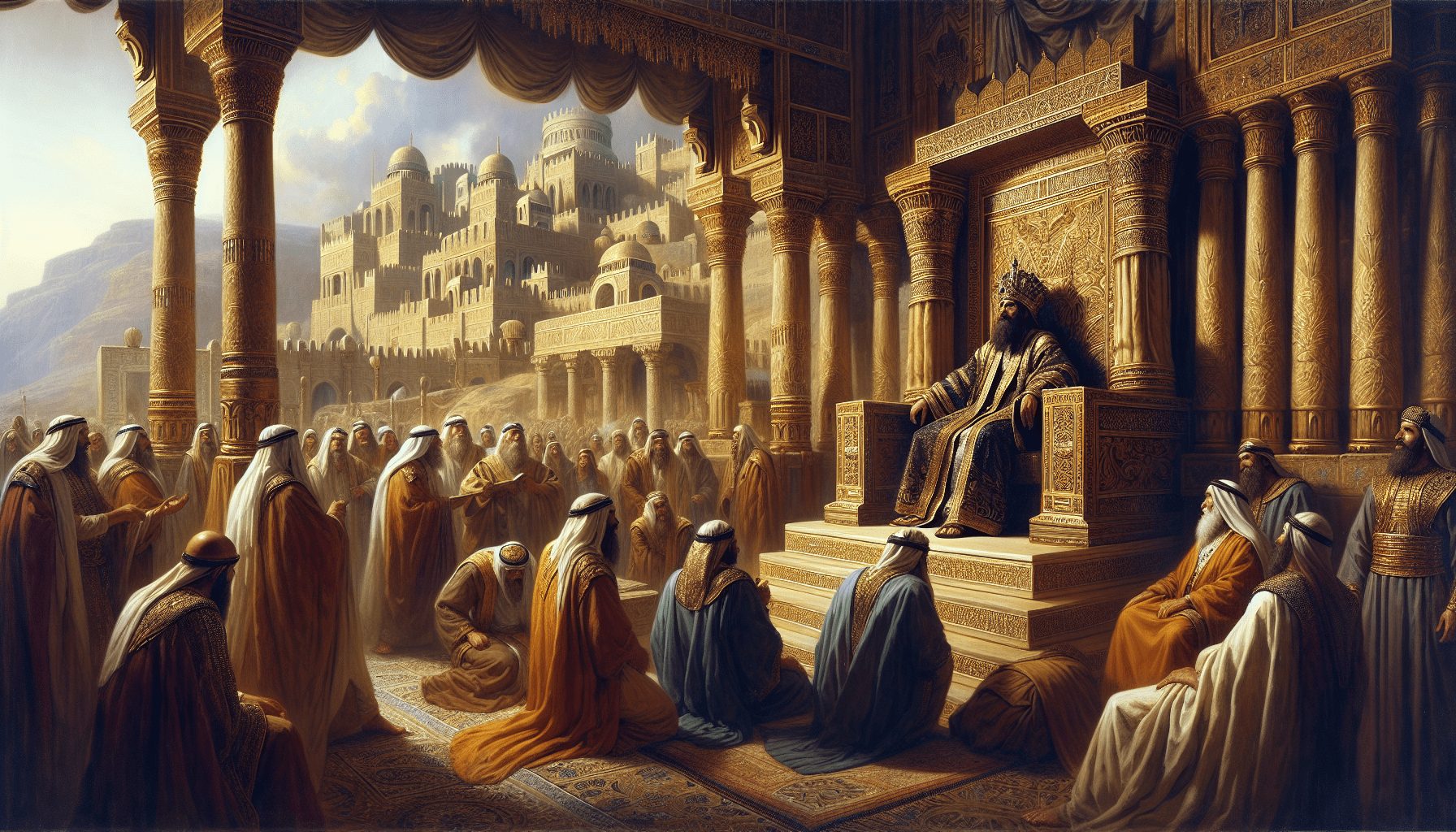Title: The Lament of the Humble King
David, the great king of Israel, was not only a warrior and ruler but also a man deeply connected with his God. Given the power of music, he often shared his thoughts and feelings to the Chief Musician, Jeduthun, and composed psalms filled with raw honesty and heartfelt yearning. Amidst the trials and tribulations of his reign, David found solace and strength in his profound relationship with Jehovah.
His heart burdened by his sins, he vowed to guard his words carefully, even when standing before the wicked. He willingly bore the bridle on his tongue, preferring to remain silent out of fear of uttering anything sinful. This self-imposed silence was not only preventing his sins, but it also made his inner turmoil and sorrow more prominent.
The heart within him was aflame, kindled by his torment, his regret, and his yearning for divine guidance. In his contemplative silence, this internal fire grew stronger until he finally voiced his deepest fears and desires, laying them bare before his God.
He entreated Jehovah, “Make me to know mine end, the measure of my days.” He confessed his frailty and acknowledged his fleeting existence. He realized that his life was but the width of a hand, transitory and insignificant before the everlasting existence of God.
David reflected on people’s futile pursuits, chasing vanity and amassing wealth with no true understanding of who would collect their carefully gathered riches. He then turned towards Jehovah, declaring his unwavering hope and trust in his God. He pleaded for deliverance from his transgressions and sought respite from the foolish ones who would scorn him.
Again, he experienced the weight of silence, a silence stemming from the realization that it was Jehovah’s will guiding his life. He was humbled by God’s chastisements, by the mighty hand that could alter his beauty and decay it like a moth-ridden cloth. He acknowledged the transient nature of man and his vanity.
David, then, pleaded, tearfully imploring Jehovah, demanding His attention, “Hear my prayer, O Jehovah, and give ear unto my cry,” he implored. And amidst his tears, he confessed being a stranger, a sojourner with God, as his ancestors had been. He beseeched Jehovah for mercy, a chance to regain his strength before he departs this world and ceases to exist.
This is the enduring psalm of David, a confession of his frailty, a testament to his humility and a testament of his faith.




